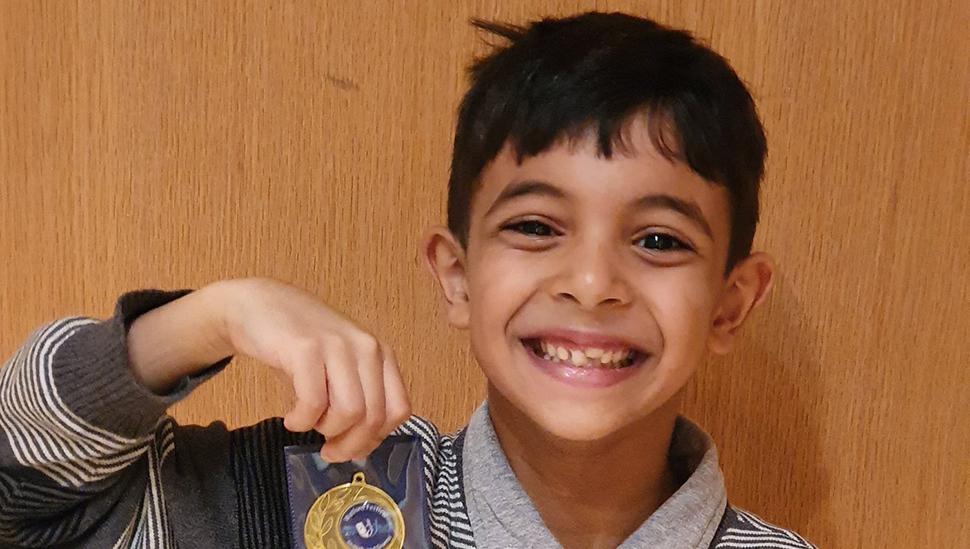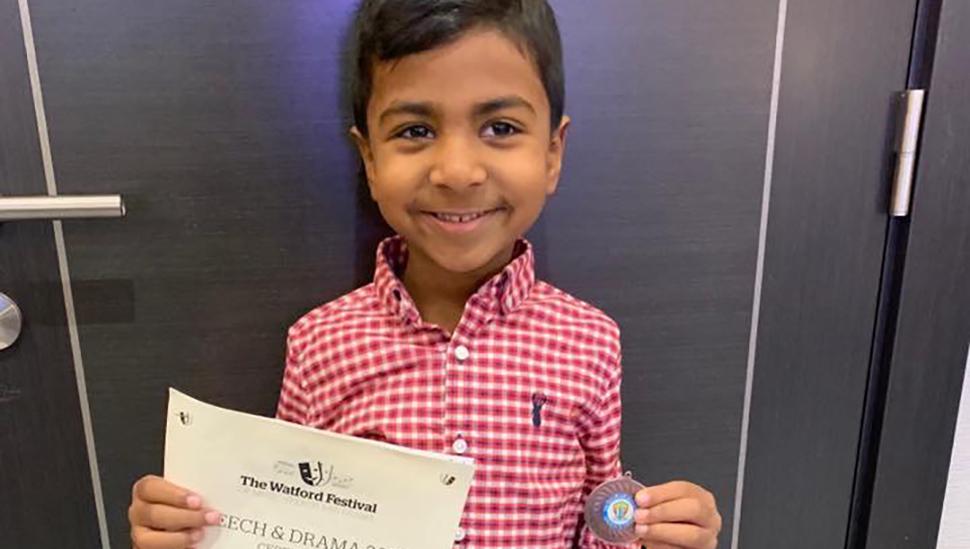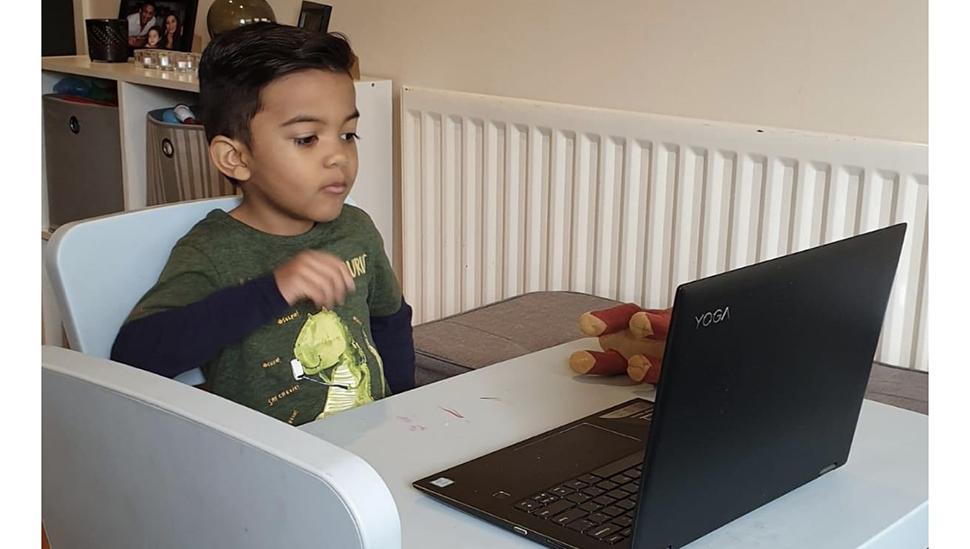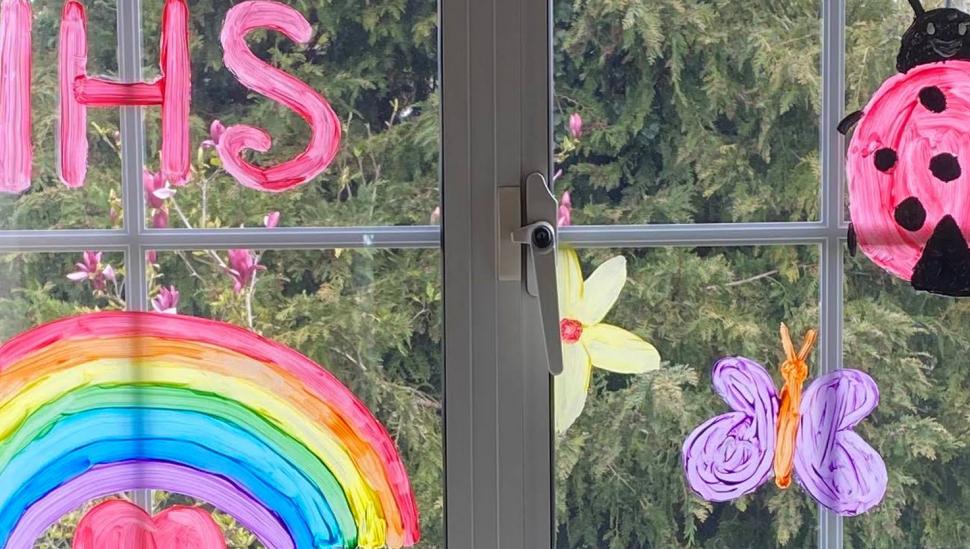Behind the Screens: Interview with Jo O’Ferrall, the founder of RM Drama
The fourth installment in the series which sees us catch up with drama teachers to find out how they are dealing with lockdown.
For this edition of Behind the Screens, we talk to Jo O’Ferrall. She is the founder of RM Drama, a drama class provider based around London, and she is offering up her insight on how her team and her learners are handling drama education online.
For Jo, the realisation that RM Drama’s setup was going to have to change came early. In February she was already preparing. “There was a mad couple of weeks, with all the teachers practicing with their friends, running drama warm-ups with their aunties, to see which ones can work on-screen, and which ones are a bit too challenging.” By the time that UK schools closed their doors to many of their pupils, they were ready, with all of Jo’s teachers delivering their classes online.
That’s not to say it was easy.
“They’ve been brilliant,” she says enthusiastically, before hesitating. “I think we’d all agree we’re not naturally tech savvy. There was a lot of fear and debating and in the preparation stages, lots of desperate, behind-the-scenes scrabbling, to understand what on earth we were doing.
“Obviously we soon got used to it. It’s very simple technology.” She laughs. “We wonder why we found it so difficult.”
As so many drama teachers have found over the past few months, it’s a matter of learning as you go.
Classes were originally going to be split into sections, with each learner getting 15 minutes to themselves, but that felt too stilted. And it was important to Jo that even if the classes were being held online, they should reflect the structure found in the classroom as much as possible.
So instead, for their group classes, they taught parents how to pin the teacher’s feed onto the screen. All the learners could now see the instructions, all the time, even if another child has “opened their book rather loudly,” says Jo by way of example as to the level of noise that might trick the live stream into switching the focus of the feed.
Sight reading has been tricky. But they’ve found ways to make it work. Splitting the screen and then screen sharing has meant that learners can now work on a piece that they haven’t seen before.
Jo has noticed how the online delivery of her lessons has enhanced skills like active listening and engaging fully with conversation. Learners need to do this even more acutely than they would in a classroom.
“After a four-hour session, I’m exhausted,” says Jo, but she doesn’t sound unhappy about it.
“Online lessons are actually incredibly efficient.”
Which leads to its own set of problems. With all this listening and engaging, time has to be set aside for all the other stuff. “What we’ve noticed, is that the pastoral element of classes can be forgotten, so we’ve made a conscious effort to address this. Those times in the classroom, pre-Covid, when learners were chatting as they came in, unpacking their bags and taking off their coats – that needs to be incorporated into the online classroom with just as much care as syllabus prep.
“Just having a little chat with them and seeing what else is going on in their day and how they are genuinely feeling about things. That can be a little bit harder to recreate in an online setting, so we try to consciously take the first minute or two, just making sure that we're still keeping that personal connection. Ultimately drama is all about emotion, and empathy. It’s been a testing time for us all, and we’ve tried to allow our children to bring the wider world into their classroom, just as they normally would.”
But despite all the work, Jo’s team have found virtual lessons to be a lifeline.
“All of our teachers, they're all professionals in the creative world. Lots of writers, actors and directors, and all sorts of things within theatre more broadly. And the arts is facing incredibly challenging times. They've found a lot of their other projects have disappeared rather rapidly and that this has been a constant in a very changing world, so we’ve been very pleased that this has been very easy to adapt and to be able to continue.
“I think it's quite a big deal. I've been really proud of our team.”
Class sizes at RM Drama are small. Often one-to-one, and never more than four. A fact that has made the transition online that little bit easier. “I think the nature of the small classes actually adapts surprisingly well,” Jo tells me. “Because you’re still directing one pupil and talking back and forwards with them.”
They’ve been using the Google Meet platform for their lessons, and the learners have adapted surprisingly well. “It’s amazing how duck-to-water they have been to understand it,” she tells me. “They are sitting there, even the very young pupils, putting themselves on mute when it’s not their turn, and putting themselves back off mute when it’s their go.”
And, perhaps inspired by the grown-ups in their lives who are taking their own video-calls, Jo's learners have even started dressing the part.
“A few of our children have turned up in proper shirts and they take it very, very, seriously.”
With so many parents struggling to run both a school and an office, all from their front room, Jo feels her teachers are doing their bit to keep children occupied.
“It's so much having children, having your own kids at home 24/7. The amount of engagement, variety and energy to try and provide a stimulating day while parents are still working and doing their own things. I felt it's important for the parents too, that we'd be able to say: “Right at, whatever their time is, Monday at five o'clock, we'll take over and they can have a break.”
This regular time slot has given parents the opportunity to turn off their own screens, relax, (“have a glass of wine,” adds Jo), all without interruption. Which can only help the wellbeing of the entire household.
While members of the younger contingent are all delighted to see their friends on screen, Jo has noticed the older ones have a touch of anxiety.
“I’ve asked a lot of them how they feel about going back to school, and I think they are feeling a bit nervous and apprehensive about how things will get back to normal.”
This is even showing in their work. One of Jo’s Reading for Performance learners is using ‘endurance’ as the theme of her recital. Picked before the Covid-19 pandemic even started, but now shaped by it. “She’s already started to see her pieces as a connection to the situation around her,” Jo tells me. “She was saying yesterday: ‘we are all having to endure something at the moment.’”
Another learner is working towards his Grade 7 Speaking in Public and is writing his speech on the ethics of democracy. He is thinking about the way this virus has curtailed our freedom, and how that works within a democratically led country.
While Jo is intrigued to see what work her learners are producing, she recognises the importance of drama in letting children channel their thoughts and feelings when they are so closed off from one another.
“We've had lots of them making rainbows, writing poems for us about being brave or being thankful for what you have.”
On RM Drama’s Facebook page, they’ve been running weekly competitions, which send their learners off looking for poems to perform around a chosen theme. A poem that inspires them. A poem that makes them laugh. A poem to celebrate the NHS.
Giving opportunities for learners to express themselves has been something Jo has been thinking about a lot. With their annual June showcase cancelled, she’s setting up an online version.
While she’s encouraging her learners to make use of all the free theatre being streamed by companies like the RSC and National Theatre, she also wants them to watch each other, and understand what it is to have your own audience, and to be inspired by your peers.
With all the teachers I’ve been talking to over the past few months, a recurring theme of distraction has come up. A chance for learners not to have to think about the world and its troubles. I comment to Jo that it’s interesting to hear from someone who is leaning right into it, inviting a creative response.
“It taps into emotion and empathy and imagining the world,” says Jo. “When you watch a film, I find myself, when you see a big crowd, thinking: 'oh, pre-corona.’”
Overnight, everything on Netflix has become a period drama. Art is no longer reflecting our reality.
“That distant memory when there were big groups of people without a care in the world... It's been a lot for kids. Trying to explain how to social distance and that they can't run up and play with their friends.
"When we've seen our group classes, it's lovely to see how excited the kids are to see each other, that they're kind of 'HELLO!’ and wave and smile at each other. I saw a few of the younger ones wearing special badges, or bringing in a picture to show to their friends at the beginning, they want to see them and interact with them.
“It's important to think of their emotional wellbeing. And how they want to respond to it. I think the lessons have helped.”
Jo’s top tips
- Play with all the different functions on your chosen platform. In terms of class control, the mute button is your friend. And having your learners pin your feed to the screen helps focus the class
- Know the LAMDA Exams syllabi. It’ll be one less thing to think about when you’re learning new tech and discovering this new method of teaching
- Practice. Get your aunties, your uncles, your siblings involved. Do some mock classes. Work out how your warmups are going to work, and everything you want to do, before you do it for real. You’ll feel more comfortable and confident then
- And speaking about confidence... we teach confidence and sometimes we forget that we need to demonstrate it too. It can be a little nerve wracking, those first online lessons – knowing that parents might be more engaged than usual, and that technical issues still need to be ironed out whilst you stay in the present. You are steering the ship. If you look like you know what you’re doing, your learners will fully engage and enjoy their journey








